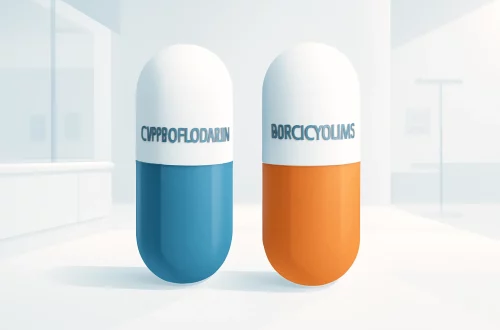
Understanding Pomeranian Hair Loss: Causes and Solutions
Understanding a pet’s health is fundamental for any responsible owner, especially when it comes to breeds like the Pomeranian. Known for their fluffy coats and lively personalities, Pomeranians are a popular choice among dog lovers. However, one common concern that many owners face is hair loss. While it’s natural for dogs to shed, excessive hair loss can signal underlying health issues or other factors that require attention.
Understanding the reasons behind a Pomeranian’s hair loss can be crucial in addressing the problem effectively. Factors such as genetics, diet, and environmental influences can all contribute to changes in a dog’s coat. Additionally, emotional stress, hormonal imbalances, and even certain medical conditions can lead to more severe hair loss, which can be distressing for both the dog and the owner.
As Pomeranians continue to capture the hearts of many, it’s important to be informed about their specific needs and potential health issues. By recognizing the signs of hair loss and understanding its potential causes, owners can take proactive steps to ensure that their furry friends maintain a healthy and vibrant coat.
Common Causes of Hair Loss in Pomeranians
Hair loss in Pomeranians can stem from a variety of causes, each requiring different approaches for management. One of the most common reasons is seasonal shedding. Like many other breeds, Pomeranians experience a natural shedding cycle, typically during the spring and fall. During these times, it’s normal for them to lose some hair as they adjust to changing temperatures.
Another frequent cause of hair loss is allergies. Pomeranians can develop allergies to various substances, including food ingredients, pollen, dust mites, and certain chemicals found in grooming products. Allergic reactions can lead to itching and irritation, prompting dogs to scratch or bite at their skin, which exacerbates hair loss.
Parasites, such as fleas and mites, are also notorious for causing hair loss. Flea infestations can lead to intense itching, while conditions like demodicosis (caused by a type of mite) can result in localized hair loss and skin issues. Regular grooming and preventive treatments are essential for keeping these pests at bay.
Hormonal imbalances, such as hypothyroidism or Cushing’s disease, can also trigger excessive shedding and hair loss. These conditions affect the way a dog’s body regulates various functions, including coat health. If a Pomeranian is experiencing abnormal hair loss, it’s crucial to consult a veterinarian for a proper diagnosis.
Lastly, emotional distress or anxiety can play a significant role in hair loss. Changes in the dog’s environment, such as moving to a new home or the introduction of a new pet, can lead to stress-induced behaviors like excessive grooming. This form of hair loss, known as psychogenic alopecia, can often go unnoticed until the damage is significant.
Identifying Hair Loss Patterns
Understanding the pattern of hair loss is vital in identifying the underlying cause. Pomeranians may experience hair loss in specific areas or all over their body, and the pattern can provide clues to the owner. For instance, localized hair loss around the ears or eyes may indicate a skin infection or allergy, while more generalized shedding could suggest seasonal changes or hormonal issues.
Owners should also observe the condition of the skin beneath the fur. Healthy skin should be free from redness, inflammation, or flaking. If any of these symptoms are present, it may signal a more serious issue, such as infection or allergy, that needs immediate attention. Regularly inspecting your Pomeranian’s coat and skin can help catch problems early, reducing the severity of hair loss.
It’s also beneficial to keep a record of changes in your Pomeranian’s coat over time. Noting when hair loss occurs, how much hair is lost, and any accompanying symptoms like itching or changes in behavior can provide valuable information for a veterinarian. This documentation can aid in diagnosis and treatment, leading to a more effective intervention.
In some cases, hair loss may be accompanied by other health concerns, such as lethargy, weight changes, or gastrointestinal issues. When these symptoms arise, they should not be overlooked, as they may indicate a systemic problem that requires veterinary care.
Solutions and Treatments for Hair Loss
Once the cause of hair loss in Pomeranians has been identified, various solutions and treatments can be implemented. For seasonal shedding, a consistent grooming routine can help manage loose hair and minimize the mess at home. Regular brushing not only keeps the coat looking good but also promotes healthy skin by distributing natural oils.
In cases of allergies, identifying and eliminating the allergen is crucial. This may involve changing the dog’s diet to a hypoallergenic formula or minimizing exposure to environmental triggers. Consultations with a veterinarian can help determine the best course of action. In some instances, allergy medications or treatments like immunotherapy may be recommended to alleviate symptoms.
For dogs suffering from parasites, a veterinarian can prescribe appropriate treatments, such as topical or oral medications, to eliminate fleas, ticks, or mites. Regular preventive measures, such as flea and tick control, can also help maintain a healthy coat and skin.
If hormonal imbalances are diagnosed, veterinary intervention is necessary. Treatments may include medication to regulate hormone levels, which can help restore normal coat condition. Monitoring your dog’s health and behavior closely can also provide insights into how well the treatment is working.
For cases of stress-induced hair loss, addressing the root cause of anxiety is essential. Providing a stable environment, regular exercise, and mental stimulation can help alleviate stress. In severe cases, a veterinarian may suggest behavioral therapies or medications to help manage anxiety.
The Role of Nutrition in Coat Health
Diet plays a significant role in maintaining a healthy coat for Pomeranians. Nutritional deficiencies can lead to dry skin and poor coat condition, which may exacerbate hair loss. A well-balanced diet rich in essential fatty acids, vitamins, and minerals is crucial for promoting healthy skin and hair growth.
Omega-3 and Omega-6 fatty acids are particularly beneficial for coat health. These fatty acids can help reduce inflammation and improve skin hydration, which can mitigate shedding and hair loss. Foods that are high in these nutrients include fish oil, flaxseed oil, and certain types of fish like salmon.
Additionally, ensuring that the diet includes adequate protein is vital, as hair is primarily made of protein. High-quality dog food should list meat as one of the first ingredients, ensuring that your Pomeranian receives sufficient protein to support hair growth and overall health.
Supplements may also be beneficial for dogs experiencing hair loss. Consult with a veterinarian before introducing any new supplements to your dog’s diet. They can recommend specific products that are safe and effective for your Pomeranian’s individual needs.
Regular hydration is equally important, as proper water intake supports skin health. Ensure that your Pomeranian has access to fresh water at all times, particularly if they are active or live in a hot environment.
In conclusion, understanding the various causes of hair loss in Pomeranians is essential for effective management. By recognizing symptoms, identifying patterns, and taking proactive steps through proper diet and care, owners can help their furry companions maintain a healthy and vibrant coat.
**Disclaimer:** This article is not intended as medical advice. If your pet is experiencing health issues, please consult a veterinarian for professional guidance and treatment.




